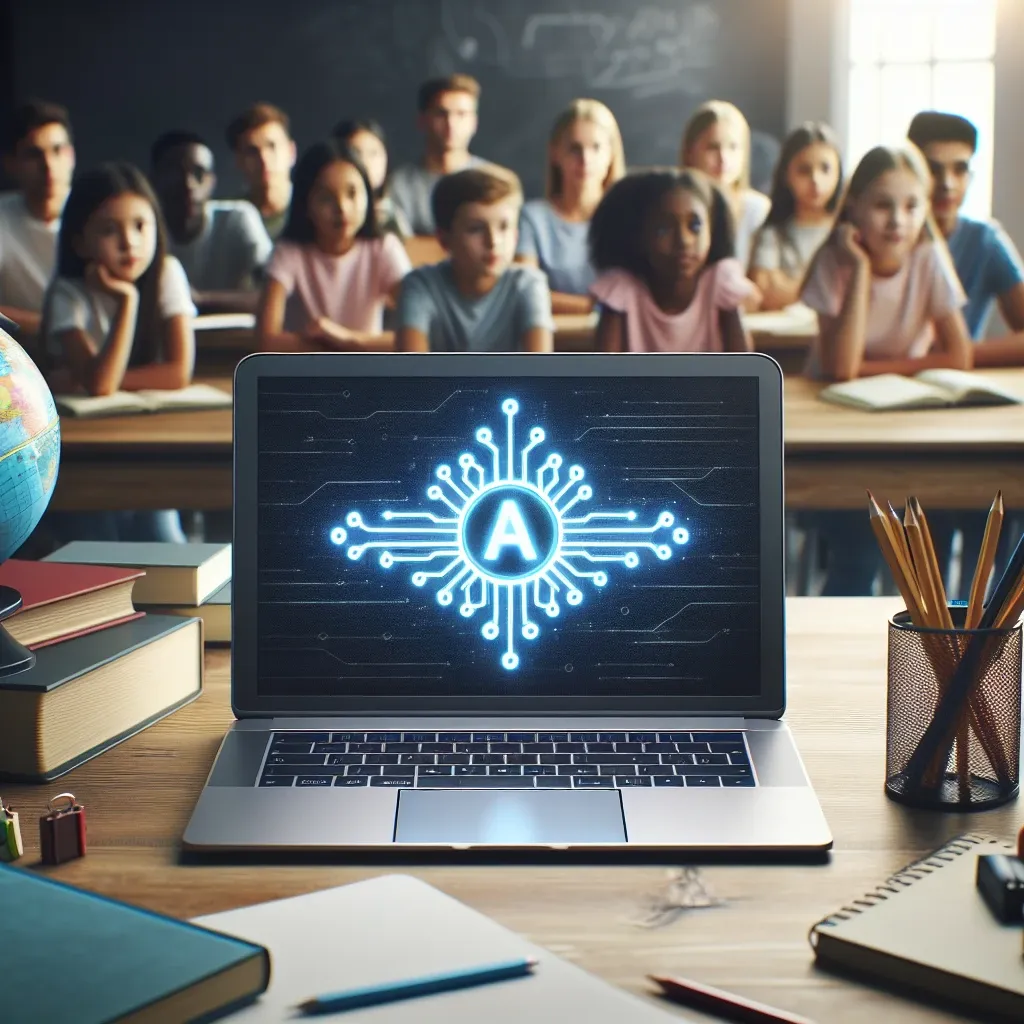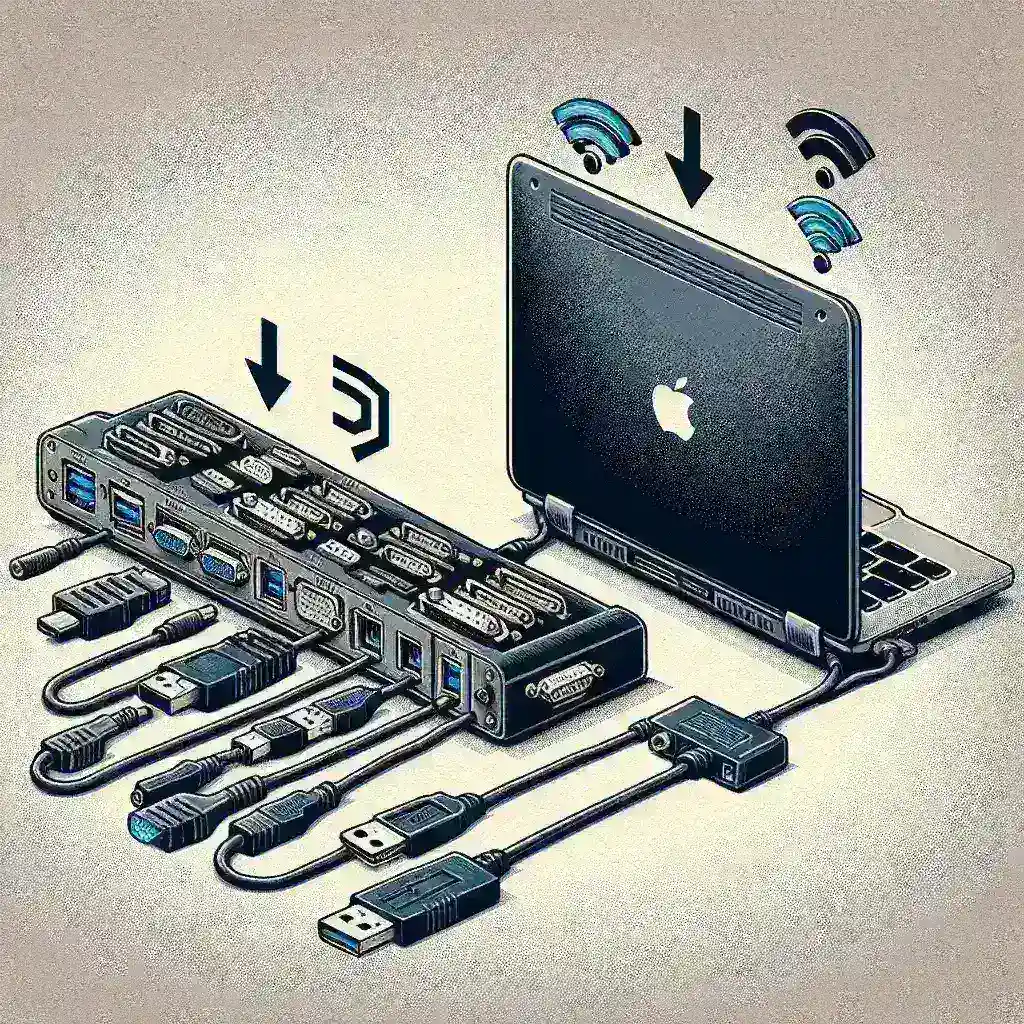Introduction
In the ever-evolving landscape of education, technology plays a pivotal role in enhancing learning experiences. One of the most exciting developments in this realm is the advent of AI-powered Chromebooks. These devices are stirring significant interest in U.S. schools, promising to transform how educators teach and how students learn. This article delves into the implications of AI-driven technology in education, examining its benefits, challenges, and future potential.
The Rise of AI-Powered Chromebooks
Chromebooks have long been recognized for their affordability, simplicity, and integration with Google’s suite of tools. However, with the integration of artificial intelligence (AI), these devices have gained a new edge. AI-powered Chromebooks leverage machine learning algorithms and data analytics to provide personalized learning experiences.
Historical Context
Understanding the current landscape necessitates a glance back at the evolution of educational technology. The introduction of computers into classrooms in the late 20th century marked a significant turning point. In the 2000s, the rise of the internet and online resources further transformed educational methodologies. The launch of Chromebooks in 2011 by Google represented a critical step towards affordable and accessible technology for schools. Now, the introduction of AI capabilities is set to rewrite the rules of engagement in classrooms.
How AI-Powered Chromebooks Enhance Learning
Personalized Learning Experiences
One of the most significant advantages of AI-powered Chromebooks is their ability to offer personalized learning experiences. AI systems analyze student performance in real-time, identifying strengths and weaknesses. This data allows educators to tailor lessons to meet individual student needs, thus fostering a more effective learning environment.
Adaptive Learning Systems
Adaptive learning systems powered by AI can dynamically modify the curriculum based on how students interact with the material. For instance, if a student struggles with a particular math concept, the system can provide additional resources and exercises tailored to their specific learning pace. This level of customization helps to close educational gaps and support diverse learning styles.
Increased Engagement and Interaction
AI can also enhance student engagement through interactive learning modules and gamified experiences. With the incorporation of chatbots and virtual assistants in AI-powered Chromebooks, students can receive immediate feedback and assistance, making learning more interactive and enjoyable. These tools not only hold students’ attention but also empower them to take charge of their learning journey.
Data-Driven Insights for Educators
AI-powered Chromebooks provide teachers with valuable insights into student performance. By analyzing data trends, educators can identify class-wide challenges and adjust their teaching strategies accordingly. This level of insight allows for more informed decision-making and improved educational outcomes.
Challenges and Considerations
Equity and Access Issues
While AI-powered Chromebooks present numerous benefits, they also raise questions about equity and access. Schools in low-income areas may struggle to afford the latest technology, creating a digital divide. Ensuring that all students have access to these advanced tools is critical for fostering an inclusive educational environment.
Data Privacy Concerns
As with any technology that collects data, privacy is a significant concern. Schools must ensure that student data is protected and used responsibly. Establishing clear guidelines regarding data usage and encryption is essential to maintain trust among students and parents.
Training and Professional Development
For AI-powered Chromebooks to be effective, educators must receive adequate training on how to utilize these tools. Professional development programs should focus on integrating AI technology into teaching practices, ensuring that teachers feel confident in leveraging these innovations in their classrooms.
Future Predictions for AI in Education
The future of AI-powered Chromebooks in U.S. schools looks promising. As technology continues to evolve, we can expect advancements that will further enhance the learning experience. The integration of augmented reality (AR) and virtual reality (VR) could open new avenues for immersive learning, providing students with experiential learning opportunities that were previously unimaginable.
Increased Collaboration
AI may also foster greater collaboration between students and educators. Through shared platforms and tools, students can work together on projects, receive feedback from peers, and engage in group learning activities. This collaborative approach mirrors the demands of the modern workforce, preparing students for future careers.
Global Learning Communities
AI-powered Chromebooks can connect students with peers and educators worldwide, creating global learning communities. This interconnectedness allows for cultural exchanges and collaborative projects that enrich students’ learning experiences and broaden their perspectives.
Conclusion
As AI-powered Chromebooks continue to gain traction in U.S. schools, they represent a significant leap forward in educational technology. By offering personalized learning experiences, enhancing engagement, and providing valuable insights for educators, these devices are poised to transform classrooms across the nation. However, addressing challenges related to equity, data privacy, and teacher training will be crucial in realizing their full potential. The future of education is bright, and AI-powered Chromebooks are at the forefront of this exciting revolution.
Expert Insights
In the words of Dr. Jane Smith, an education technology expert, “The integration of AI in education is not just about technology; it’s about creating opportunities for every learner to succeed. AI-powered Chromebooks are a step in that direction, offering tailored solutions that can adapt to the needs of diverse learners.”
Real-Life Examples
Many schools across the U.S. have already begun implementing AI-powered Chromebooks. For instance, Lincoln High School in California reported a 20% increase in student engagement and academic performance after introducing these devices into their curriculum. Such success stories are inspiring other institutions to explore the integration of AI technology in their educational practices.




